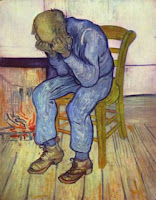
How do you see the Ahlul Bayt (as)? Are they perpetual victims in your eyes? Are they defined by the oppression they faced, the blood they spilled, the tears they shed? Or do you see them as eternal victors? Do you see their oppression, blood, and tears as the vehicles through which they triumphed over tyranny? When we listen to the tales of their tribulations, what emotions arise—sorrow, anguish, ire? Or maybe it’s admiration, hope, pride?
Their stories evoke the gamut of emotions within us; this is the essence of Ahlul Bayt (as)—they were the most extraordinary people in history yet they lived the simplest lives, and they are able to penetrate our souls so effortlessly. When you cry for any member of the Ahlul Bayt (as), do you cry because a bloody and tragic story is being relayed so passionately? Or maybe you cry humbled, knowing that regardless of the meager sacrifices we make (which seem so great to our selfish sensibilities), they can never match up to one iota of theirs?
Or maybe, just maybe, you cry because their sadness makes you realize the utter destitution of the human condition; those favored by Allah (swt) have suffered at the hands of other people—people like us. We like to think we would be with Ahlul Bayt (as)—exhibiting the bravery of Imam Hussein’s companions as opposed to the cowardice of the people of Kufa—but then we realize the sad truth. We would not be with them; rather, we would watch them suffer, and it would tear us apart, but we would do nothing. The stark reality is that our worldly lives are too important to risk. It is the Kufans who were the real cause of Imam Hussein’s demise, more so than the accursed Shimr.
But this is a moot point. It happened, and we are willing to cry for it, not learn from it. “Everyday is Ashura and every land is Karbala” has become a euphemism for the permanent state of mourning into which we have thrown ourselves. To us, Ashura was a tragedy, not a revolution.
How can I say such harsh things? It’s simple: we sit back and watch this oppression everyday with anger, sympathy, sadness, and helplessness. But we watch; “watch” is our verb, our action word. Ayatullah Khomeini (ra) once said that there are two types of people in this world: the oppressed and the oppressors. We are the oppressed, and we are the oppressors. We like to focus on the former, blaming everything and everyone but ourselves for our condition. Being a victim is painful, but that pain is too easy compared to facing the flip-side of our cruel, self-inflicted reality. Each and everyday we contribute—in some way, in some form—to oppression. I do not exclude myself from this, and I am humbled and ashamed by it.
Today, where do Shi’as stand? Are we a people who worship with our emotions alone? We have built up these traditions and institutions of demagoguery, and we are so intent upon preserving them that we cannot see any flaws in our ways. We have strayed from the path of Ahlul Bayt (as), and this is the source of the problem. Are we a people who have lost all interest in bearing the standard of Ahlul Bayt (as)? Not the tear-stained standard of sadness, but the blood-and-sweat-stained standard of victory. That is their legacy. Are we able (i.e. willing) to let go of our perpetual victim-hood and move forward with a mission and a message, or will we remain mired in moroseness?
The choice is ours…
Zeinab Chami

